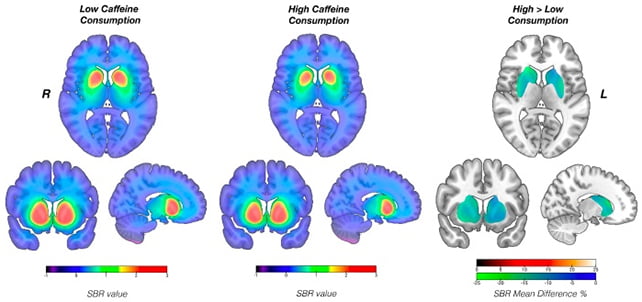ButSpeak.com
News which Matters.

A recent study conducted by researchers at the University of Turku and Turku University Hospital in Finland has uncovered significant insights into the impact of high coffee consumption on dopamine levels in individuals with Parkinson’s disease. Published findings suggest that while coffee intake may influence the risk of developing Parkinson’s, its effects on disease progression and symptom management are less promising.
Parkinson’s disease, characterized by the loss of dopamine-producing cells in the substantia nigra region of the brain, has long been speculated to have potential links to coffee consumption. Previous epidemiological studies hinted at a reduced risk of Parkinson’s with higher caffeine intake, prompting the current study to delve deeper into its effects on dopamine function in diagnosed individuals.

Lead neurologist Valtteri Kaasinen emphasized the novelty of their research: “While past studies highlighted a correlation between caffeine and reduced Parkinson’s risk, ours is the first to scrutinize caffeine’s impact on disease progression and dopamine function.”
The study tracked 163 early-stage Parkinson’s patients alongside 40 healthy controls, with a subset undergoing a second evaluation approximately six years later. Researchers assessed dopamine transporter binding, a critical indicator of dopamine levels, in relation to participants’ coffee consumption habits.
Results revealed that individuals consuming three or more cups of caffeinated coffee daily exhibited 8.3 to 15.4 percent lower dopamine transporter binding compared to those consuming fewer cups. This suggests a potential downregulation in dopamine production, contrary to earlier assumptions of caffeine’s neuroprotective properties.
Contrarily, the study found no evidence of coffee’s ability to restore dopamine levels or improve Parkinson’s symptoms in diagnosed patients. “While caffeine may mitigate Parkinson’s risk, its role in enhancing dopamine systems in established cases appears negligible,” remarked Kaasinen. “Increased caffeine intake did not correlate with improved motor function or symptom alleviation.”
Researchers postulate that the observed dopamine downregulation mirrors processes seen with other stimulants in healthy individuals. Moreover, timing coffee consumption close to clinical dopamine imaging could skew test outcomes, complicating diagnostic accuracy.
Despite the study’s cautious findings on coffee’s therapeutic potential for Parkinson’s patients, it contributes crucial evidence to our understanding of dopamine dynamics in the disease. “Our results do not advocate for caffeine treatment or heightened coffee consumption in newly diagnosed Parkinson’s patients,” the researchers concluded.
While coffee’s impact on Parkinson’s remains nuanced, this study underscores the intricate interplay between caffeine, dopamine regulation, and disease progression, paving the way for more targeted therapeutic approaches in the future.